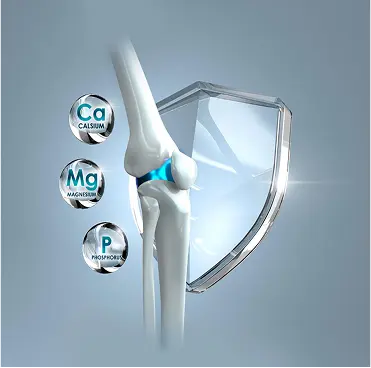When it comes to keeping our bones strong and healthy, most of us immediately think of calcium and vitamin D.
And rightly so they are the foundation of bone health. But did you know that a truly resilient skeleton needs more than just these two nutrients? From magnesium to vitamin K2, your bones rely on a delicate balance of vitamins and minerals to stay strong, repair themselves, and prevent fractures as you age.
In this article, we explore the essential nutrients your bones crave and how to naturally incorporate them into your daily life.

When Do You Need Hip Replacement Surgery?
Doctors may suggest hip replacement when:
- Chronic hip pain persists even with medication and therapy
- Mobility becomes difficult, affecting simple tasks like walking or climbing stairs
- Sleep and rest are constantly disturbed due to hip discomfort
- X-rays show severe joint damage
If you’re experiencing these symptoms, it’s worth consulting a specialist to understand whether hip replacement is the right solution.
1. Calcium
Calcium is the most abundant mineral in the body, making up your bones and teeth. Adults typically need about 1,000 mg per day, which can be found in dairy products, leafy greens, almonds, and fortified plant-based milk. Regular intake helps maintain bone density and prevents osteoporosis in later years.
2. Vitamin D
Vitamin D plays a crucial role in helping your body absorb calcium. Without enough vitamin D, your bones may become weak and brittle. Sunlight is a natural source, but fatty fish, eggs, and fortified foods are excellent alternatives for those with limited sun exposure.
3. Magnesium
Magnesium contributes to bone structure and helps regulate calcium levels in the body. Foods like pumpkin seeds, spinach, and black beans are rich in magnesium. Ensuring adequate intake can reduce the risk of bone loss over time.
4. Vitamin K2
Vitamin K2 helps calcium attach to your bones instead of soft tissues like arteries. Natto, cheese, and egg yolks are natural sources of K2. This nutrient works behind the scenes to ensure calcium strengthens your skeleton effectively.
5. Protein
Bones aren’t just minerals they are living tissues made of protein and collagen. Lean meats, fish, beans, and dairy provide the protein necessary for bone repair and growth.
6. Other Key Nutrients
Zinc, phosphorus, and vitamin C also play essential roles in bone health. Citrus fruits, nuts, seeds, and whole grains can help cover these bases, supporting collagen production and mineral balance.
Strong bones are built over a lifetime, not overnight.
While calcium and vitamin D are critical, a holistic approach that includes magnesium, vitamin K2, protein, and other essential nutrients can make all the difference.
By choosing a balanced diet and mindful lifestyle habits, you can support your skeletal health and enjoy an active, mobile life for years to come.
Latest News & Blogs

Hip Replacement Surgery: When, How, and Recovery Guidelines
Hip Replacement Surgery in Bangalore | Recovery & Guidelines

Type 2 Diabetes: Early Symptoms You Shouldn’t Ignore
Early Warning Signs of Type 2 Diabetes and When to Seek Help

When to Visit a General Physician vs a Specialist: Why Starting with General Medicine Often Makes Sense
When to Visit a General Physician vs Specialist: Choose General Medicine First



